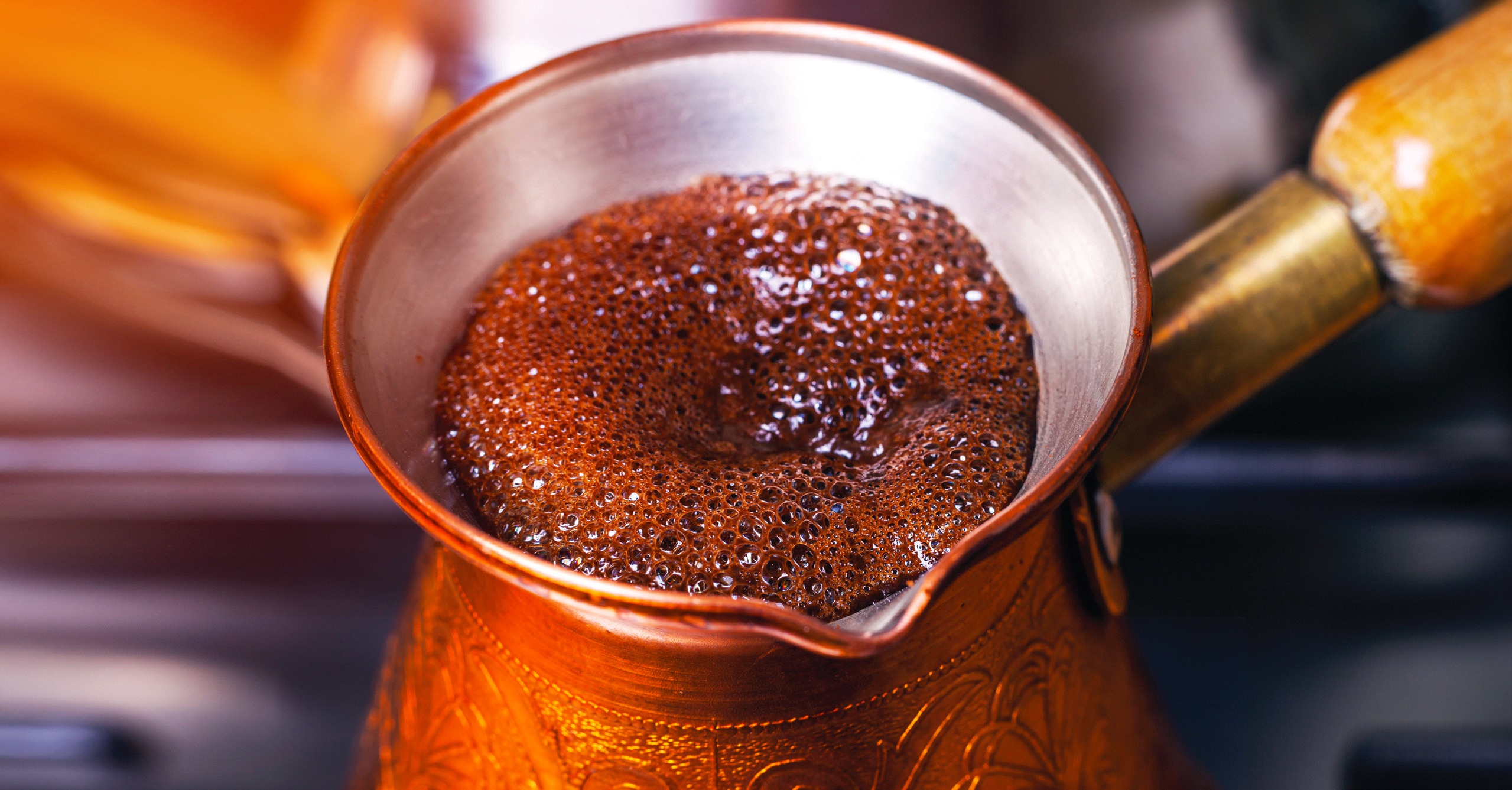Turkish coffee and its slow-release mechanism
Dr. Selim Erhan, TLT Editor | TLT From the Editor May 2022
Comparing different coffees can take on a molecular point of view.

Slow-release mechanisms are gaining popularity in pharmaceuticals and agricultural applications. But there is another area where they are beneficial—also a popular area—coffee drinking!
Coffee and travel go hand in hand, so I wanted to complete last month’s travel theme. One of the top desires in traveling is to find good food and enjoy it while looking at sites that we came to see. Different regions have different food, which adds to the sense of adventure and excitement. However, one thing we all count on is a good cup of coffee to start our day or end a relaxing dinner.
I grew up in Turkey, which has a very rich coffee tradition going back many centuries. Coffee came to the Ottoman Empire in the late 15th Century. Yemeni merchants started introducing coffee from Ethiopia, which spread throughout Arabia and reached the Ottoman lands. It quickly spread throughout the provinces. It became the center point in gatherings, and coffee houses became centers of information and social activities.
Coffee was first introduced to Europe by Turkish armies battling in Hungary (1526) and later during the siege of Vienna (1529). Soon it spread throughout Europe, and coffee drinking became very popular to major cities in England, Austria, France, Germany and Holland. It started replacing traditional breakfast beverages of wine and beer when people realized they were more alert after drinking coffee, and their productivity greatly improved. In England for the price of a penny, people could get a cup of coffee and engage in stimulating conversation—hence, coffee houses were sometimes called “penny universities.”
Needless to say, I like all kinds of coffee. I drink whatever is available at any location. This allowed me to start comparing the effects of the different ways of preparing it. As I am a chemist, the comparison of the different coffees soon took a molecular point of view. First, I must mention that coffee is very rich in aromatic and volatile oils. If a coffee container, especially ground coffee, is left open, it will start losing these volatile oils. I am sure many people having a choice will choose freshly ground coffee. Then, if prepared with boiling water, again, a significant amount of these oils will be lost.
Turkish coffee is prepared differently than most methods. The very finely ground coffee is put into a suitable sized pot, and cold water and sugar (if needed) are added, and the mixture is slowly stirred while heating. At the first sign of boiling, the pot is removed from the heat for a few seconds—then put back on the heat—and again removed from the heat when it just starts boiling. This way the coffee grounds never come to boiling water temperatures. In this way, the volatile oils are retained much better. So Turkish coffee is not strong, just has more flavor.
On a side note, and especially as it concerns health, I want to mention that the same principle is used in preparing tea. If tea is extracted with boiling water, the tannins in the tea are released much more efficiently, and tannins are known to cause esophagus cancer. In a traditional Semaver, tea leaves are put in cold water in a smaller pot, which is then placed on a larger pot of boiling water. The steam that rises heats the pot on top and allows the extraction at lower than boiling temperatures.
Coming back to coffee, I started noticing something. After drinking a small cup of Turkish coffee, and I mean almost tiny by most coffee cup standards, I noticed that I did not get thirsty or hungry for hours. Coffee prepared with other methods does not give a prolonged satiation feeling. I finally found out why while listening to a presentation on a new automatic Turkish coffee maker. They said in drip coffee, each coffee bean is ground to approximately 4,000 particles. In Turkish coffee, each bean is ground to 40,000 particles. Naturally, quite a few bits of tiny coffee particles stay suspended and settle into the groves of the tongue. As they are slowly released from captivity, they keep stimulating the senses and prevent thirst or hunger for quite a while!
Dr. Selim Erhan is director of business development for Process Oils Inc. in Trout Valley, Ill. You can reach him at serhan@processoilsinc.com.